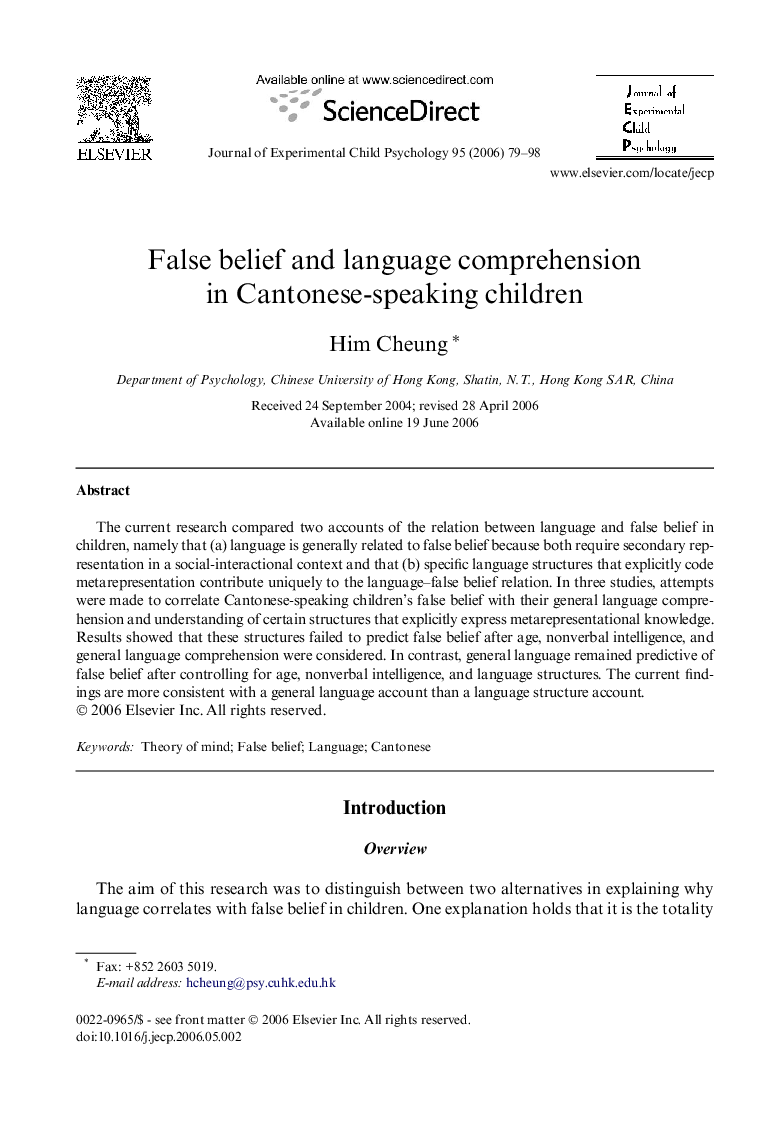| Article ID | Journal | Published Year | Pages | File Type |
|---|---|---|---|---|
| 918784 | Journal of Experimental Child Psychology | 2006 | 20 Pages |
The current research compared two accounts of the relation between language and false belief in children, namely that (a) language is generally related to false belief because both require secondary representation in a social-interactional context and that (b) specific language structures that explicitly code metarepresentation contribute uniquely to the language–false belief relation. In three studies, attempts were made to correlate Cantonese-speaking children’s false belief with their general language comprehension and understanding of certain structures that explicitly express metarepresentational knowledge. Results showed that these structures failed to predict false belief after age, nonverbal intelligence, and general language comprehension were considered. In contrast, general language remained predictive of false belief after controlling for age, nonverbal intelligence, and language structures. The current findings are more consistent with a general language account than a language structure account.
